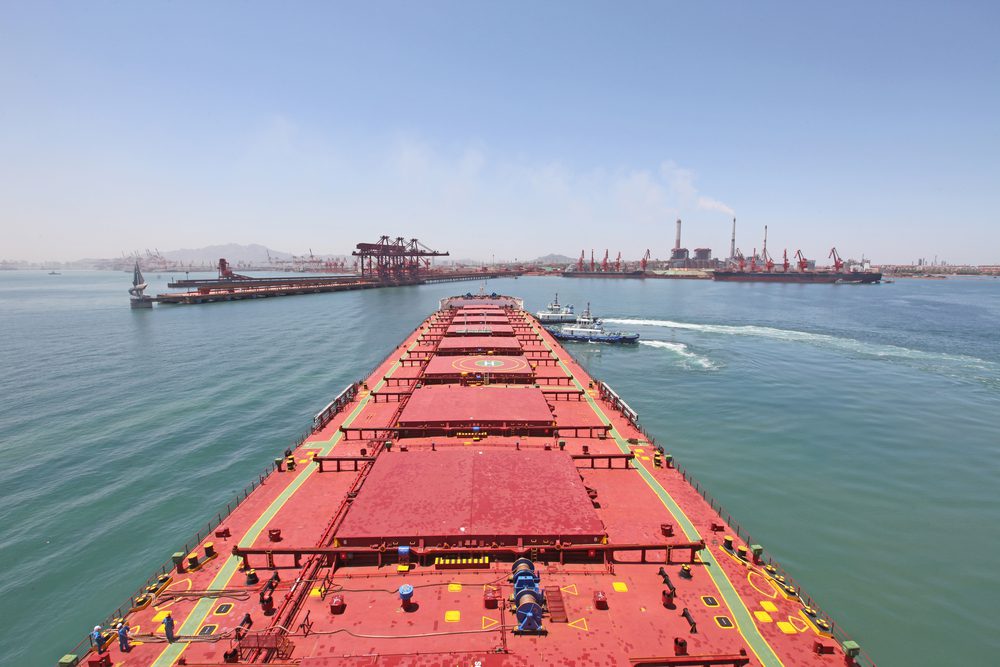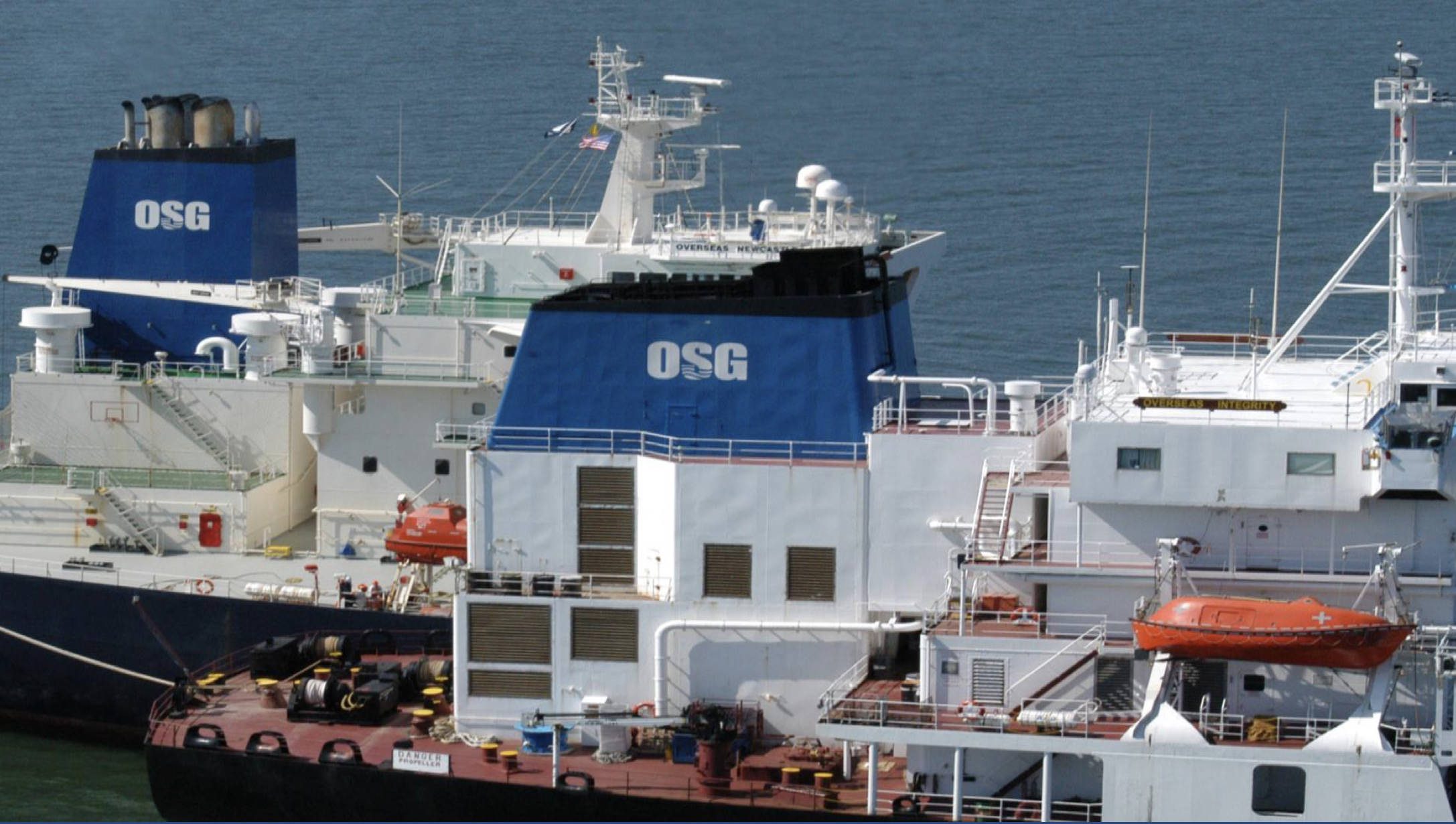Photo: tcly / Shutterstock
By Krystal Chia (Bloomberg) — The global iron ore market was pitched into turmoil after Brazil’s Vale SA, the world’s largest producer, outlined plans to cut output after a deadly dam breach, buoying shares of rivals as investors weighed the impact of the disruption. Prices soared, with futures rallying more than 9 percent.
Vale will decommission some tailings dams, curbing production by 40 million tons a year, Chief Executive Officer Fabio Schvartsman said at a press conference, citing a plan presented to the Energy and Environment Ministries. The impact will be partially offset by an increase in production from other systems, Vale said. The company had planned to mine 400 million tons this year.
The severity of the fallout will hinge on Vale’s ability, as well as efforts by other miners, to make up the tons that’ll be lost. A sharp reduction in supply, if that happens, would tighten the global seaborne market, aiding Rio Tinto Group, BHP Group and Anglo American Plc, while lifting costs for steelmakers across the globe. One of Vale’s dams collapsed last Friday, hammering the company’s share price and spurring speculation that while the affected operation was minor, the repercussions would affect a greater share of output.
“Vale certainly has the ability to replace 40 million tons in output, and in fact it’d initially have 50 million tons of flexible production,” said Vivek Dhar, an analyst at Commonwealth Bank of Australia. “But the key question is how quickly they’ll be able to compensate that output, bearing in mind social, political pressures, and that investigations are still ongoing.”
On Singapore Exchange Ltd., benchmark futures jumped as much as 9.6 percent to $86.20 a ton, the highest since March 2017, and traded at $81.75 at 3:46 p.m. Futures in Dalian closed 4.7 percent higher. Benchmark ore for immediate delivery jumped 4.6 percent to $83.95 a ton on Wednesday, according to Mysteel.com. High-grade ore rose to $100.30 a ton, the highest since September 2017.
For additional coverage of iron ore markets: Vale Cutting 40 Million Tons of Output Amid Disaster Fallout Iron Ore Update: Vale to ‘Partially Offset’ Cuts in Production Brazil Hedge-Fund Icon Scoops Up Vale Shares After Disaster Goldman Says Vale’s Spill to Raise Costs for All Iron Miners
Australian miners soared. Rio closed 4.5 percent higher to A$87.30, the highest since 2011, while BHP Group rose 2.6 percent, and Fortescue Metals Group Ltd. was up 7.8 percent.
Other Systems
“The estimated impact of the production stoppage is about 40 million tons of iron ore per year, including in this figure the pellet feed needed for the production of 11 million tons of pellets, an impact that will be partially offset by the increase in production of other systems,” Vale said.
The global seaborne market totals about 1.6 billion tons, according to the Australian government. Forty million tons equals 2.5 percent of that figure.
Goldman Sachs Group Inc. boosted its iron ore outlook after Vale’s statement, raising its three, six and 12-month forecasts to $80, $70 and $65 a ton from previous targets of $70, $60 and $60. The bank estimated Vale’s output would contract by between 10 million and 15 million tons this year as the miner would be able to offset some, but not all, of the losses, according to a note.
The accident happened at a time when the seaborne market “was already tight,” Goldman said, warning prices are likely to go “significantly higher.” There could additional hits to supply as “the incident may lead authorities to tighten environmental checks and affect other companies’ production,” it said.
China Mills
“This is bad news for steel mills,” Huatai Futures analyst Sarah Zhao said via Wechat. A rise in iron ore prices would erode mill profitability, and steelmakers may choose to use more scrap instead of iron ore in steelmaking, she said.
While there may be some relief from mill stockpiles, the incident is coming at a time where China is heading into the construction season. “Lucky for mills, they restocked before prices spiked,” said Tomas Gutierrez, analyst at Kallanish Commodities Ltd. “Unfortunately for them, it now looks like the hike will be sustained through the peak demand season when they typically earn their best margins.”
Impact at Sea
Vale’s decision could also have dramatic consequences for the global shipping industry, reducing the volume of cargoes carried between Brazil and top user China, as well as to ports in Europe.
“It is a severe blow to Capesize vessels,” said Bloomberg Intelligence senior analyst Rahul Kapoor. “Already reeling from weak seasonality and Chinese slowdown, loss of significant iron ore volumes from Vale will exacerbate the vessel oversupply.”
© 2019 Bloomberg L.P
Unlock Exclusive Insights Today!
Join the gCaptain Club for curated content, insider opinions, and vibrant community discussions.

 Join The Club
Join The Club







![A screengrab of a map showing an earthquake Mindanao, Philippines on Dec 2, 2023. (Image: US Geological Survey [USGS])](https://gcaptain.com/wp-content/uploads/2023/12/Screenshot-2023-12-02-at-10.45.17-AM-copy.png.webp)





